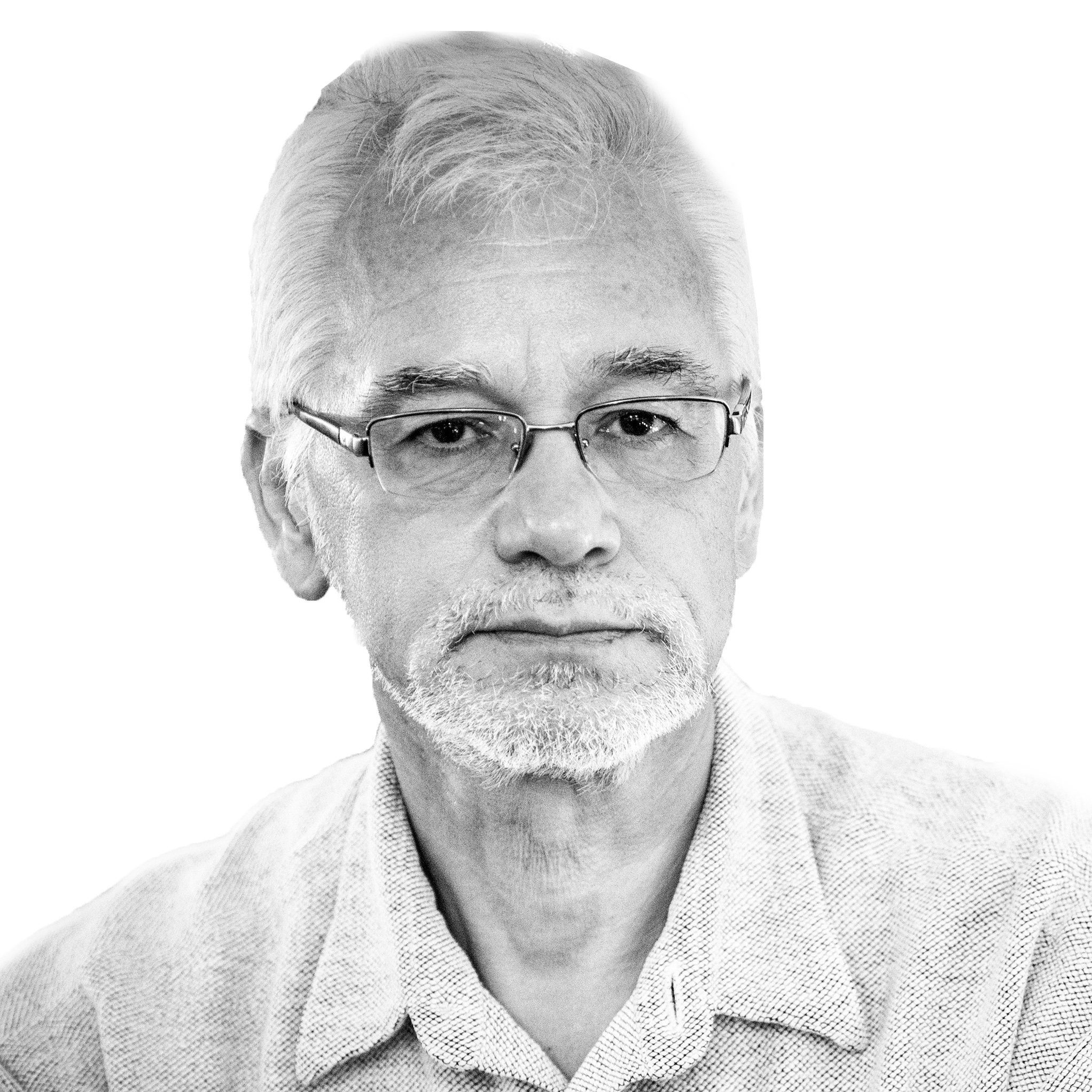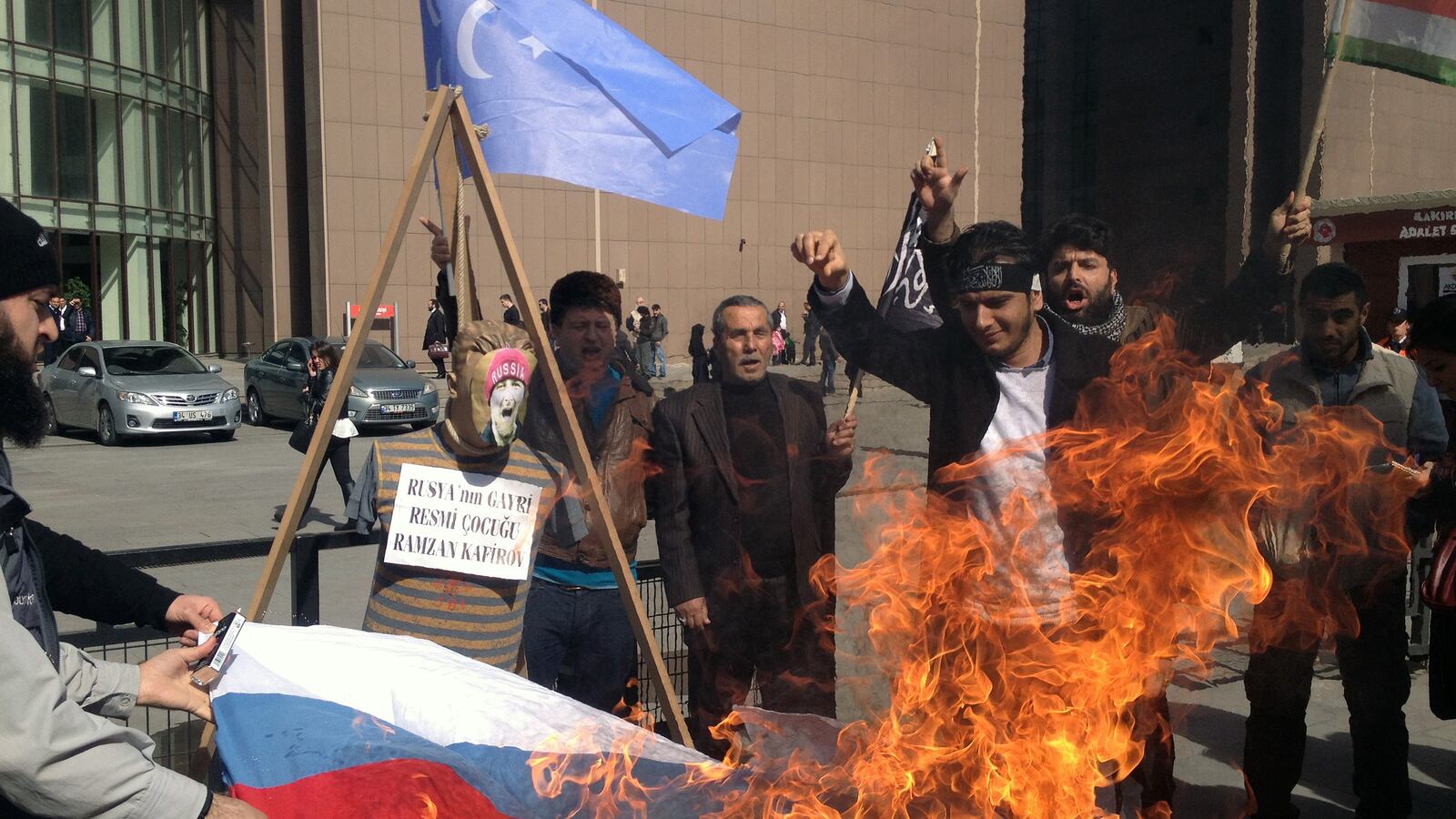ISTANBUL—In a case reminiscent of a John le Carré thriller, a prosecutor in Istanbul is accusing Russia of sending hit men to Turkey to kill Chechen activists.

A court in Istanbul this week started proceedings against Temur Makhauri, a Georgian national who allegedly killed a Chechen Islamist rebel in Istanbul in 2009. On the opening day of the trial on March 3, Mr Makhauri, who operated under the codename “Zona” according to the prosecution, plead not guilty to the killing of Ali Osaev, a local leader of the Caucasus Emirate, a group defined as a terrorist organisation by both Russia and the United States.
In the same trial, the court is trying two other suspected agents of the Russian spy agency Federal Security Service (FSB) in absentia. Prosecutor Gokhan Sayin is accusing them of the execution-style killing of three other Chechens in 2011 before slipping out of Turkey with forged passports.
Chechen associations in Turkey say the trial is a landmark case that could help to unveil what they say is a network of Russian agents hunting Chechen activists and other activists abroad.
“It is the first time that the Turkish judiciary has accused Russia’s intelligence service of carrying out those crimes,” Murat Ozer, chairman of Imkander, a group helping Chechen refugees in Turkey, who attended the opening of the trial, told The Daily Beast. He said Turkey was suspecting Russia of “waging war” against Chechens abroad.
Russia has been accused for years of hunting down what it sees as its enemies, but undisputed convictions of killers remain rare. In 2004, a court in Qatar handed down life sentences to two Russian intelligence operatives for assassinating Zelimkan Yandarviyev, a Chechen rebel leader. Russia insisted the two men were innocent. In 2009, Dubai police said a Russian politician ordered the killing of Sulim Yamadayev, another Chechen rebel.
British authorities also blamed Russian agents for the death of the former FSB member Alexander Litvinenko by radioactive poisoning with Polonium-210 in London in 2006, but Moscow refused to extradite the suspected killer.
Ozer, the head of Imkander, said the Istanbul trial could provide a rare insight into Moscow’s campaign to kill dissidents. He added he felt encouraged by the court’s handling of the case. The presiding judge, Ilhami Yilmaz, rejected a bid by “Zona’s” lawyer to separate the two murder cases of 2009 and 2011, suggesting the court thought there was evidence to show that the crimes had been committed “by the same organization.”
Pro-Chechen sympathies are widespread in Turkey, where between two and five million of the country’s 75 million people trace their family history back to the Caucasus. The region used to be a part of the Ottoman Empire before Russia took over in the 19th century. Conflicts between Russia and Chechen rebels in the 1990s and early 2000s sent Chechen refugees, including militants, across the Black Sea to Turkey.
Ozer said Russia regarded the killings of dissidents abroad as legitimate under “the rules of war.” Following the death of 170 people during the hostage crisis in a Moscow theater in 2002, Russian president Vladimir Putin vowed to strike back against the perpetrators and their backers “wherever they may be located.”
In the 2009 killing of Osaev, the victim was shot in the face three times from close range. According to the prosecution, “Zona” had the nerve to attend Osaev’s funeral in Istanbul several days after he shot him, a charge the defendant denies.
Before “Zona” was arrested in 2012 at Istanbul airport, he met with Russian agents to plan further attacks, the prosecution says. According to news reports, “Zona” confirmed the meetings, but said his intention was to inform the Georgian intelligence service about them. “Zona” said he himself fought against the Russians in the Caucasus. The prosecution is calling for a life sentence for “Zona”.
Two years after Osaev’s death, three other Chechen refugees, Berg-Khas Musaev, Zaurberk Amriev and Rustam Altemirov, were struck down with bullets in broad daylight as they got out of a car in the Istanbul neighbourhood of Zeytinburnu. At least two of the victims were connected to the Caucasus Emirate, according to Turkish news reports. The prosecution says two Russian agents, named as Alexander Zharkov and Nadim Ayupov, carried out the killings and fled shortly afterwards.
According to Ozer of the Imkander association, the prosecution in the Istanbul trial is expected to argue that “Zona” was involved in planning an assassination attempt against Chechen rebel leader Dokka Umarov, who is thought to be in hiding in Turkey. Umarov, the self-declared leader of the Caucasus Emirate, is one of Russia’s most wanted men.
“It is a turnaround,” Ozer said about the trial, which is scheduled to continue on April 21, with “Zona” remaining in detention. “Whether or not there will be convictions at the end—the Turkish state says it is convinced that Russia’s intelligence service is behind the murders.”
Chechen activists say the danger from Russian agents in Turkey is continuing. Last year, businessman Medet Onlu was gunned down by unknown assailants in Ankara. Unlu, a Turkish citizen, was the unofficial “Honorary Consul of the Chechen Republic of Ichkeria,” the unrecognized rebel government in Chechnya. At the time, Chechen and Circassian associations in Turkey said Unlu was killed by the Russian intelligence service, but no arrests were made.
“They want to make us shut up,” Ozer said. He said he himself had received threats via the Internet, which had been traced back to Russia. “I am concerned, but that will not keep me from continuing my work. I want the Russian occupation of Chechnya to end. We are all going to die at some point anyway.”






